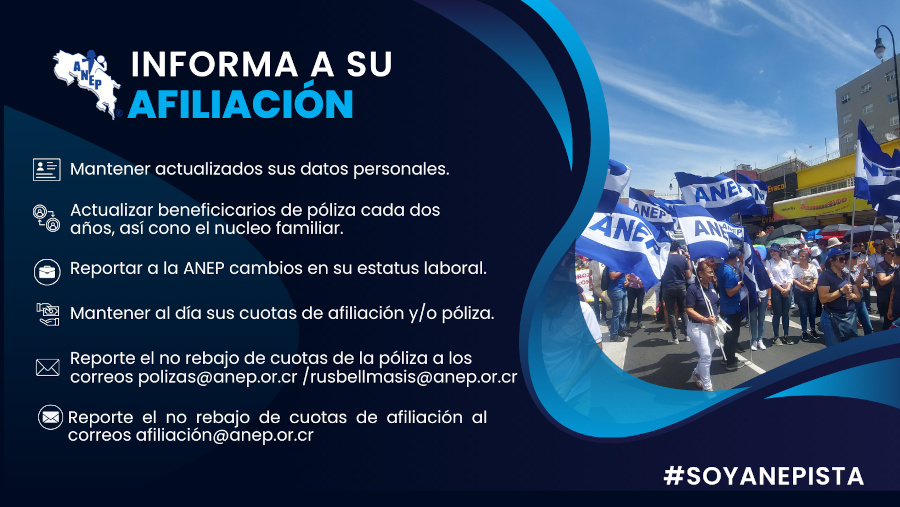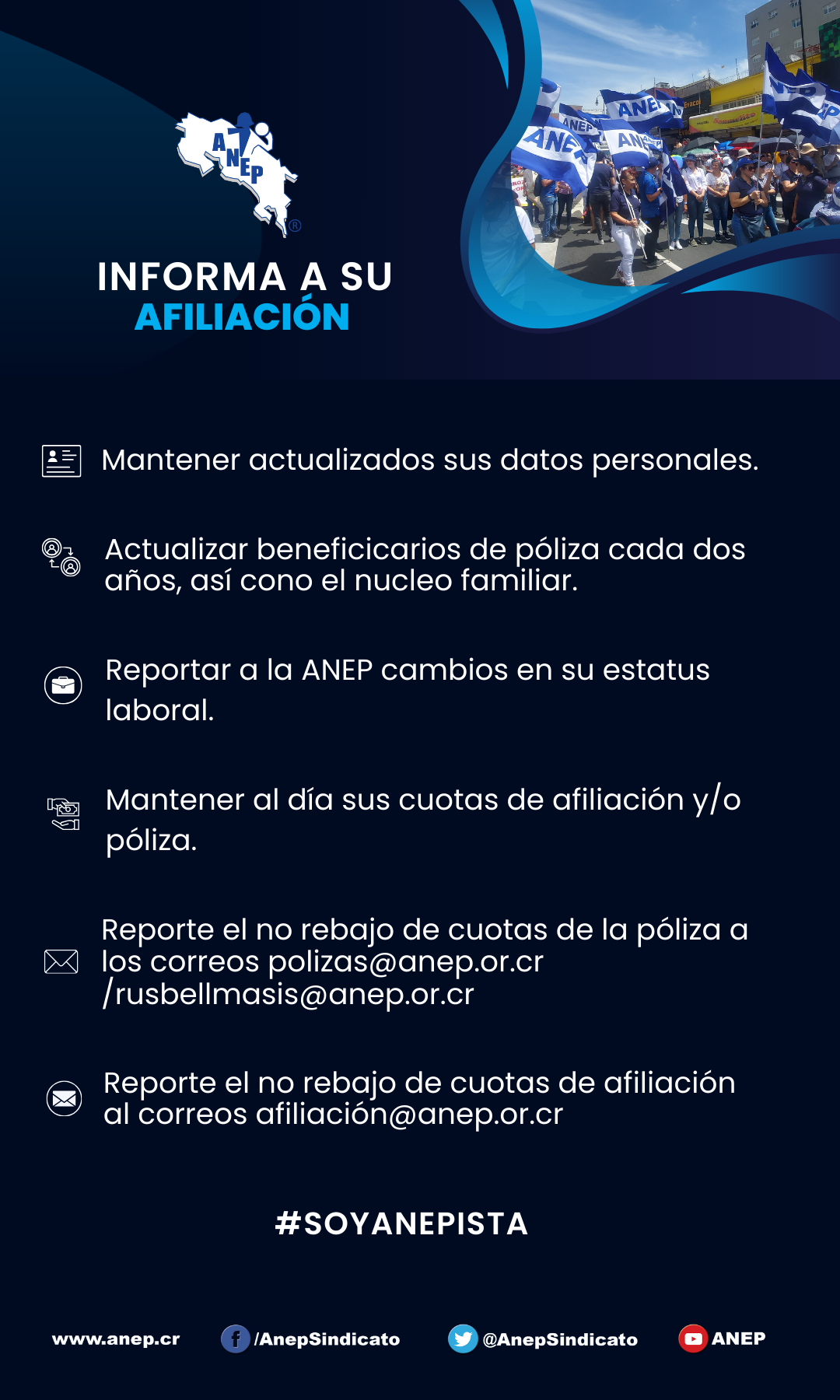I am writing, on behalf of one of the largest trade unions in Costa Rica, named Asociación Nacional de Empleados Públicos y Privados (ANEP) to express to you, and hopefully through you to order Congress Members, our adamant opposition to the Central America Free Trade Agreement (CAFTA) on which you may soon be asked to cast a vote. The Democrats have long been the champions of the labor, environmental, small farmer, immigrant and women’s perspective. CAFTA is opposed by the majority of groups representing these constituencies. I strongly urge you to oppose CAFTA.
CAFTA has no meaningful and enforceable standards for workers rights and environmental protection. CAFTA only allows for actions to be taken against the repeated failure of signatory nations to enforce their existing labor and environmental laws- regardless of the fact that the laws in Central America fall substantially below internationally recognized standards. There are significant loopholes within the proposed provisions that would make it extremely difficult to take action against a country that has repeatedly failed to enforce its laws, much less international standards. Central American countries routinely suppress union organizing efforts to keep wages artificially low, and reject establishing and enforcing environmental standards in order to attract foreign investment. The absence of such standards ensures that CAFTA would exacerbate the flight of United States jobs in manufacturing, professional services and agriculture, to create bad jobs in Central America.
CAFTA could devastate small farmers in both the U.S. and Central America. The elimination of an effective price floor would force down market prices, allowing corporate agribusiness to sell their products at far below cost. Under NAFTA, huge multinational agribusiness all but wiped out Mexican corn farmers, forcing many of them to abandon their families and communities to seek jobs in maquilas or to emigrate to the U.S. CAFTA opens the door to imports that threaten sensitive agricultural sectors like sugar beets, dairy, avocado, melon and others. The foreseeable outcome of CAFTA’s agricultural impacts will be the devastation of rural communities, reduction in food sovereignty for Central America, and increased migration to the U.S. Frederickson of the National
Farmers Union says “The CAFTA resembles failed trade policies of the past…further encourages a race to the bottom for producer prices and fails to address major issues that distort fair trade.” Further more, the increasing poverty levels that CAFTA will produce, will create the best ground for narcotrafic from South America to the United States.
CAFTA could force government to bid out certain essential government services forcing privatization and deregulation. Privatization would extend similar provisions as those that allowed Enron to take advantage of California to other essential services including water distribution, oil and gas development, education, telecommunications, energy, insurance services, and health care. CAFTA, covering federal, state and local services, would prohibit numerical limits on harmful service activities, potentially including zoning restrictions based on size or density, or other restrictions in sectors including waste disposal, tourism in sensitive areas and energy (oil and gas) extraction. This greatly restricts public and government participation in providing and regulating essential human services. This government participation has proven essential in the Costa Rican development.
CAFTA expands the definition of “investment” beyond NAFTA’s notorious Chapter 11, allowing corporations to sue governments over environmental, public health, and public safety protections in closed international trade tribunals. CAFTA’s architects failed to heed concerns expressed by the National Association of Attorney’s General, National Conference of State Legislatures, Congress and civil society that foreign corporations be granted no greater rights than those afforded U.S. citizens and businesses under domestic law.
I hope that you will champion a new international trade agenda that balances the needs of business, workers, communities and the environment. It is possible. Corporate negotiated trade like CAFTA is not responsible economic policy and will not contribute to long term growth. Please take a public position against CAFTA now.
Attached to this letter, you will find a paper that we have written about CAFTA. I look forward to your response to my comments.
Sincerely,
Albino Vargas Barrantes
Secretario General









